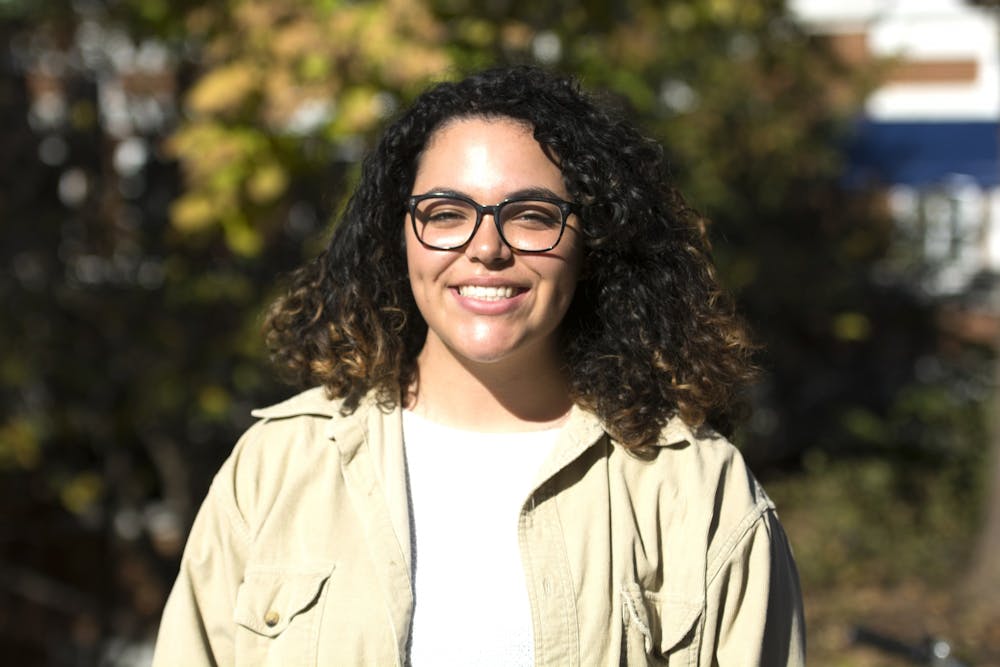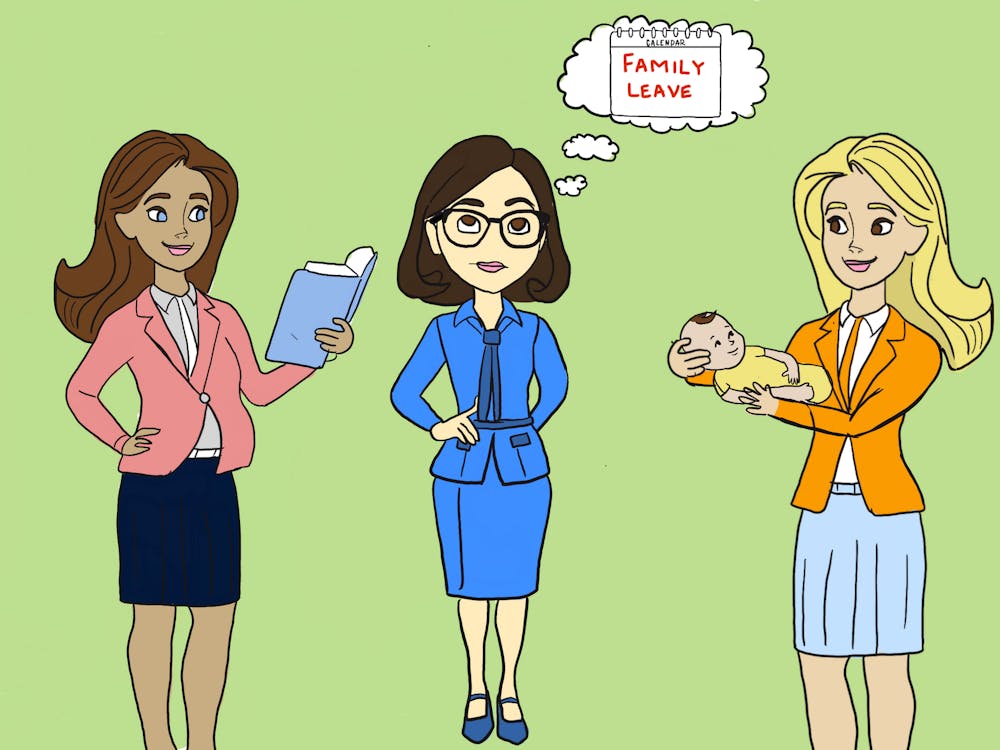The vice presidential debate on Oct. 7 surely stirred up a social media storm of tweets, memes and even an entire profile — with over 100,000 followers — dedicated to the fly that landed on Vice President Mike Pence’s head. But Senator Kamala Harris’ words to Pence are the words I hope echoed around the world and reached the ears of every little girl — “Mr. Vice President, I’m speaking. I’m speaking.”
It is a tale as old as time — Black women being spoken over and spoken for — and one that extends far beyond politics, I might add. I would say with near certainty that any Black woman in America probably could not count the absurd number of times she has been interrupted and talked over in her life without running out of fingers on both her hands. I know I could name more than a few. Why is it that men — white men in particular — feel the need to interrupt us and to speak over us?
I think we all know the answer. Like I said, it is a tale as old as time — or as old as racism, if that could actually be confined to a time span. Sure, it may not be as obvious as using racial slurs or saying you would never vote for a Black woman, but it is covertly racist in a way that cannot be ignored. We see this familiar narrative play out every day, especially in the world of higher education.
An article from Inside Higher Ed dubs this phenomenon “manterrupting” and sheds light on the experiences of a few women from several races in academia. They also report results from a study on “manterrupting” that found that men interrupted women 2.1 times per three-minute conversation and interrupted other men 1.8 times, while women on average interrupted men once.
But I have known this for a long time — and the rest of the country has too. The most disrespected, unprotected person in America is the Black woman.
I see this lack of respect — this suppression of Black female voices — here at the University. I see it in the lack of Black female faculty in the College of Arts & Sciences — there are 23, a mere 2.65 percent of all faculty, while there are 245 white female faculty members and 376 white male ones.
I see it in the way I am expected to move aside when passing a group of white students on the sidewalk. I remember it in the way the “situation” at the Multicultural Student Center was handled by our administration last spring, and in the way I questioned whether our University valued protecting a Black student from physical harm or protecting its image on the internet.
I see it when I try to share my thoughts in class and am interrupted by a white peer who is trying to play “devil’s advocate.” I feel it in my chest when I walk across Grounds and see that the buildings do not display the legacies of a diverse group of meaningful contributors to the University, but bear the names of affluent white men who would not have wanted to see me here on their Grounds.
But, I know that I am not alone when I say that I often feel like my voice is muffled by the University and by the racist, sexist beliefs it was founded upon. Whether we want to acknowledge it or not, Mr. Jefferson's University still perpetuates Mr. Jefferson's ideas.
Jefferson made his thoughts on Black people all too clear in journals, letters and documents that have been preserved online. Every member of the University community should read the words Jefferson wrote in Query XIV of Notes on the State of Virginia (1781) — “love seems with them to be more an eager desire than a tender delicate mixture of sentiment and sensation. Their griefs are transient … In general, their existence appears to participate more of sensation than reflection.” In his own words, Jefferson described slaves as “moveables” incapable of reason and any emotion beyond lust.
But perhaps the most horrifying of Jefferson’s recorded thoughts is in his letter to the politician John Holmes — “As it is, we have the wolf by the ear, and we can neither hold him nor safely let him go. Justice is in one scale, and self-preservation in the other.” Jefferson, like many other slave owners, understood very well how absolutely vile it was to buy, sell and trade human beings like they were property, but he was unwilling to risk tipping the “scale” that he claims was already balanced with Black people in chains.
The beliefs of the white men who shaped the University into the elite institution it is today still take up far too much space on our Grounds and play too big a role in who feels welcome here. That needs to change.
The kind of change I am talking about here has two crucial parts — the first being the continual acknowledgement and unhindered discussion of the stained legacy the University is inextricably linked to. The second is the amplification of the voices — the uplifting of the students — that are here at this University in spite of men like Jefferson.
I refuse to let a man who died nearly 200 years ago speak over me, and I refuse to accept that the systems he helped create are too old and too deep to be uprooted. I also refuse to believe that I am the only one speaking — I know that I am not.
So, I would like to take a moment to empower the Black women at this University who may feel like their voices are falling on deaf ears. Please keep speaking. Ignore the “angry and confrontational” stereotypes people may thrust upon you. Destroy the box this institution tries to cram you into. Your light and the power of your words cannot be diminished.
At least in my experience, people only try to suppress what they feel threatened by. So, please do not give up, keep speaking — it is working.
I promise to do everything I can to make sure our voices are heard, to remember that we do have a place here and to never stop using my own voice — or my own words — to call out the suppression I see.
Mr. Jefferson, we are speaking. We are speaking.
Emma Keller is a Life Columnist at The Cavalier Daily. She can be reached at life@cavalierdaily.com.







